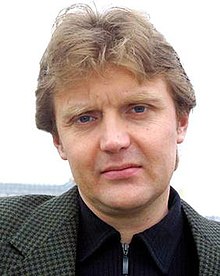Hosted in cooperation with the Atlantic Council and the US Department of State, this panel discussion examined the extent of Russia’s disinformation campaign and its impact on Ukraine and Europe. In particular it looked at why this effort has been a success, how it is undermining European democracy and what possible solutions may exist. Speakers included: Geoffrey Pyatt, US Ambassador to Ukraine; Oleksander Scherba, Ambassador at Large, Ministry of Foreign Affairs, Ukraine; Michael Weiss, Editor-in-Chief, The Interpreter and Peter Pomerantsev, Journalist and Documentary Producer. LI’s Anne Applebaum served as moderator. #RussiaVsReality
This is Vladimir Putin’s response to the wave of democracy movements that spread through the Arab world and Eastern Europe. Totalitarian states are particularly vulnerable to these movements. Their response is to attack the vector on which the “virus” is borne — mainstream and social media — in order to destroy its effectiveness.


